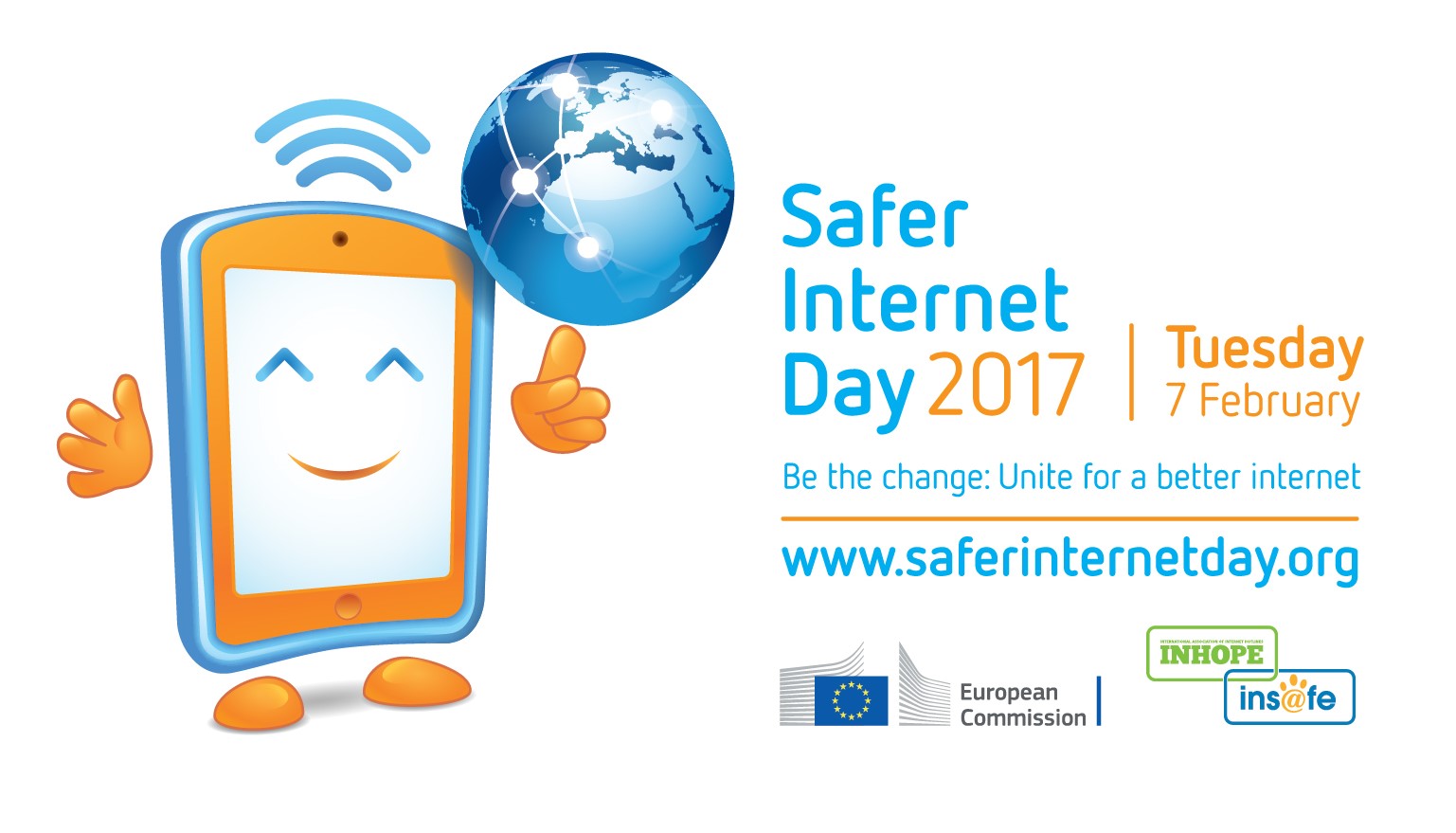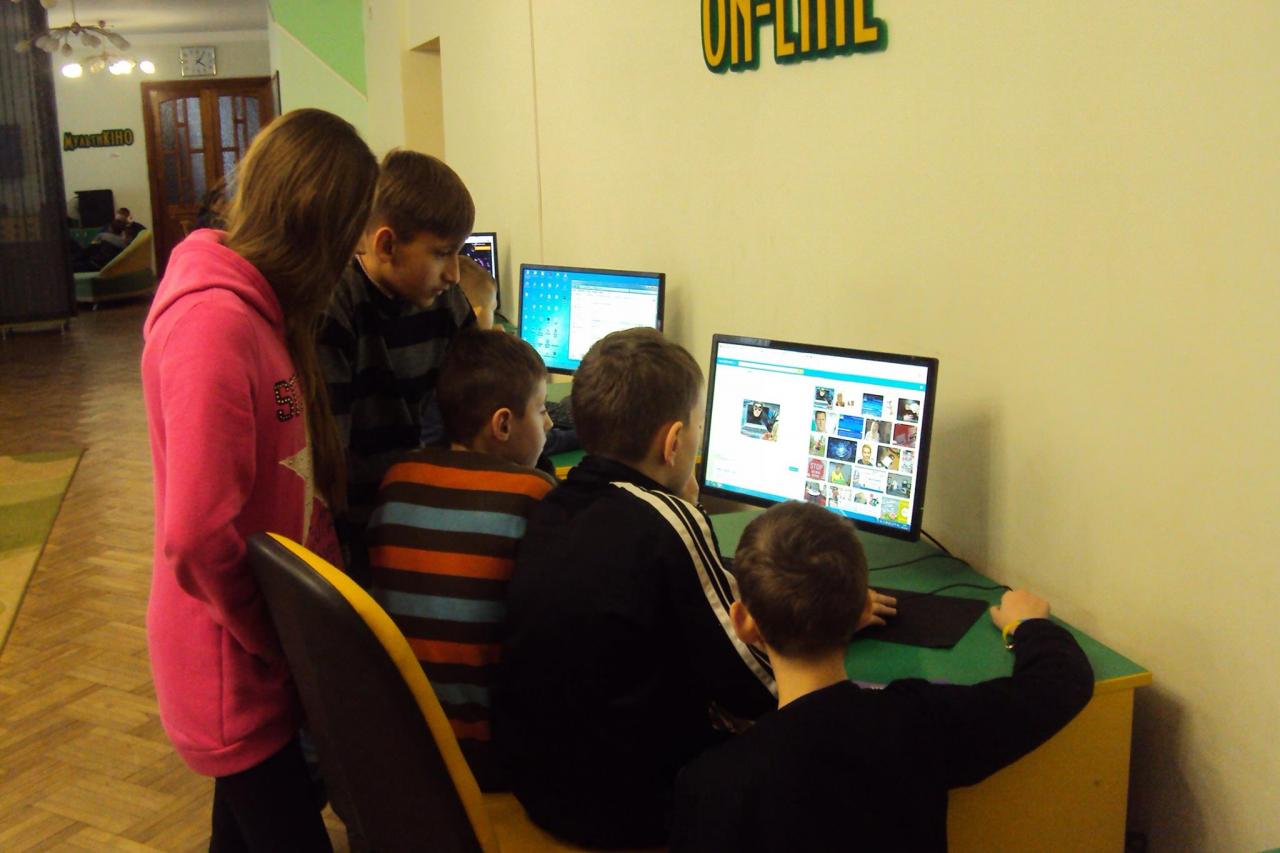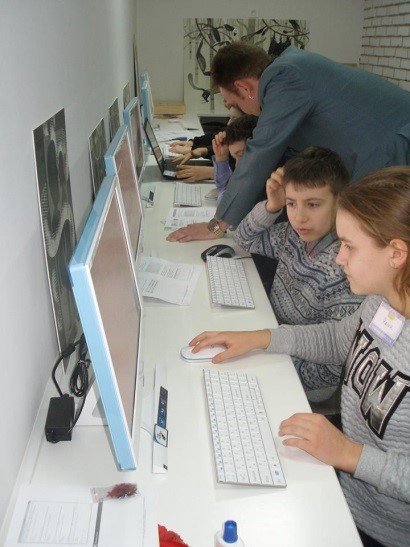How Libraries Help Build a Safer Internet
07 February 2017
 Libraries have always been about giving people access to the knowledge they need to take on the world. Through promoting literacy, innovation and creativity, they empower users to discover new perspectives for themselves, find better jobs, and generate new ideas. These are the foundations of a strong society.
Libraries have always been about giving people access to the knowledge they need to take on the world. Through promoting literacy, innovation and creativity, they empower users to discover new perspectives for themselves, find better jobs, and generate new ideas. These are the foundations of a strong society.
The Internet offers the opportunity to access more information, faster, than ever before. The opportunities are immense, and with more and more people online (although far from al!), they can be shared.
However, alongside the opportunities there are also perceived threats: cybercrime (as well as more traditional crime), hate speech, and fears about privacy amongst others.
Concern about these may turn many off the internet, or at least ensure they stay only on certain sites or platforms. In many countries, governments use these as an excuse to take decisions on behalf of their citizens through censorship or Internet shut-downs.
While both responses may make the problems go away in the short term, they are not a sustainable solution. In line with the IFLA Internet Manifesto, libraries around the world are working to give people the knowledge, skills and confidence to be empowered, responsible Internet users. This makes a vital contribution to a richer, more effective, more participatory web.
To mark Safer Internet Day 2017, here are just some examples of what libraries are doing:
 UK: The Society of Chief Librarians has proposed five steps which libraries can take to help children stay safe online, including awareness raising, group activities, and ensuring that children are able to report things that make them feel uncomfortable.
UK: The Society of Chief Librarians has proposed five steps which libraries can take to help children stay safe online, including awareness raising, group activities, and ensuring that children are able to report things that make them feel uncomfortable.
Wales: Coleg Sir Gâr has set up bilingual displays, developed a ‘stay safe online’ helpsheet as well as a resources handout promoting relevant materials, and will be offering users the chance to test the strength of their passwords using an iPad.
Wales: Torfaen Libraries run weekly 'IT Drop-in Sessions' where users can do everything from learn how to work their tablets to discovering the possibilities of the Internet. They help new users understand the Internet, how it works, and how to protect themselves, working from stronger passwords to spotting suspicious e-mails and safe online banking.
Australia: Queensland University of Technology library has created an interactive social media skills online tool – ‘Create a Better Online You’ – and resources under a Creative Commons Licence. This is aimed at young adults (although works for all adults), whereas many other tools focus on children. In Tasmania, the Office of the Children's eSafety Commission has been training librarians in how to help young boost their skills and confidence, ahead of a nationwide roll-out.
Germany: Stuttgart Public Libraries have organised a week of action, with a series of events, from cryptoparties to coding sessions and interactive workshops on staying safe online.
Latvia: there is a map of all the institutions – schools and libraries – participating in Safer Internet Day. Activities range from storytelling hours and discussions to board and virtual games and creative labs.
United States: New York Public Library has a set of Intenet Safety Tips for children and teenagers.
The Netherlands: libraries are using an e-learning package on online privacy to understand how best to advice users on keeping their data safe online.
Brazil: The Professora Etelvina Lima Library, located in the Federal University Minas Gerais, offers courses and training to help users conduct internet searches autonomously and securely.

Ukraine: On 7 February, the Busk Ivan Kotlyarevsky Central Rayon Library (Lviv oblast) raised awareness among its users about safe internet use, including guidelines for educators and students. The Zhytomyr Regional Library for Children (Ukraine) also joined the Safer Internet Day. Children of junior classes had interactive information sessions "Best Sites for Children “and "History and Etiquette of E-mail"; A virtual lesson "Netiquette – Etiquette of Computer Networks" was conducted for senior students (http://childlibr.org.ua/7-lyutogo-v-sviti-vidznachavsya…/). Lviv Central Children's Library offered a lesson on internet safety for children and parents, usinga selection of commercials on the topic of internet security. They also talked about how to identify dangerous sites, and how to becoming a victim of deception, as well as developing a methodology for network security with a list of recommended safe web sites.
In addition, Ivano-Frankivsk, Kharkiv oblast libraries, the National Library for Children of Ukraine, Mariupol City Library (Donetsk oblast) and others have Code Clubs where children and teenagers have weekly coding sessions and interactive lessons on staying safe online. The Center for Continuing Information and Library Education in Kyiv, the State Library for Youth and other libraries also provide training on safe Internet use for librarians, and Ukrainian libraries work with NGOs and other partners to achieve the goals of Safer Internet Day.
Other organisations, such as EDRi also have useful resources.
If you have further examples to share, please contact us!